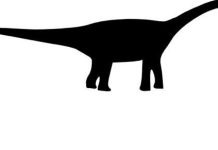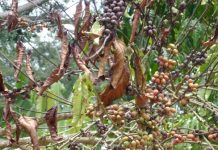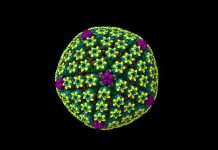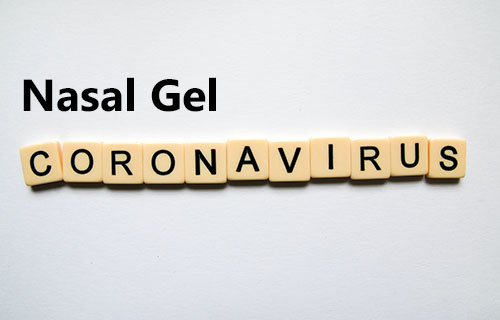Use of nasal gel as a novel means to inactivate COVID-19 in a biological manner and prevent its entry into human body may help avert community transmission of this virus, thereby helping in disease control and management.
In an effort to contain COVID-19 pandemic, numerous ways have emerged over the past few months, wearing a face mask and maintaining social distancing among the top ones till now to prevent the spread of COVID-19 disease. Numerous labs around the world are frantically searching for ways to combat the virus that causes COVID-19, either by preventing it from infecting the human population by means of physical, social and biological barriers or by developing drugs that can cure the debilitating disease.
In this article, we discuss a novel and interesting biological means to inactivate the virus that causes COVID-19, before it physically enters the human body. We are all aware that the virus spreading COVID-19 enters the human body majorly through the nasal passage whenever the person comes in contact with the droplets containing virus in its surroundings. Scientists at IIT Mumbai in India have secured a grant from the Department of Science and Technology– Science and Engineering Board (DST-SERB) to work on the project, “Antibody-based capture of 2019-nCoV and its inactivation using lipid-based in situ gel” (1).
The goal of the project is to develop antibodies against the receptor-binding domain of the spike glycoprotein of the disease causing COVID-19 virus involved in recognizing a host cell-surface receptor, namely, zinc peptidase angiotensin-converting enzyme 2. The antibodies developed would be incorporated in unsaturated free fatty acid-based emulsion loaded in-situ gels to inactivate the virus at the point of entry.
The gel to be developed above would be applied to the nasal passage, which is a major entry point of the COVID-19 virus. The virus on coming in contact with the gel would get inactivated and stuck inside the gel, thereby preventing its entry into the host. This solution can be suggested for protecting the safety of the health workers especially otolaryngologists (2, 3) who are at a greater risk due to close contact with mucus membranes of upper respiratory tract of infected people and people working for other essential services where they come in close contact with other fellow workers and public. This innovative method has the potential to safeguard doctors and healthcare workers, reduce community transmission, thereby helping in disease control and management.
However, as with all other measures, this particular innovation comes with its own challenges. Generation of specific antibodies against the surface glycoprotein of the virus in sufficient bulk quantities in a short time is the first one. The gel material used should be hypo-allergenic to humans and the quantity of gel administered to the nasal passage needs to be standardized as under-doing it may not help inactivate the virus properly and over-doing it may lead to blockage of the nasal passage, lead to potential breathing difficulties. It will be even more challenging to decide and administer the optimal gel quantity in patients with asthma and related disorders.
Nevertheless, the approach of using a nasal based gel for inactivating the virus by biological means seems to be an innovative one and worth pursuing to understand its effectiveness in controlling this pandemic.
***
References:
1. PIB, 2020. Government of India Pres Release ID 1612161. Available on https://pib.gov.in/PressReleseDetail.aspx?PRID=1612161
2. Vukkadala N,. et. al, 2020. COVID-19 and the otolaryngologist – preliminary evidence-based review. . Laryngoscope. 2020 Mar 26. DOI: https://doi.org/10.1002/lary.28672 [Epub ahead of print].
3. Givi B., et al, 2020. Safety Recommendations for Evaluation and Surgery of the Head and Neck During the COVID-19 Pandemic. JAMA Otolaryngol Head Neck Surg. Published online March 31, 2020. DOI: http://doi.org/10.1001/jamaoto.2020.0780
***




































